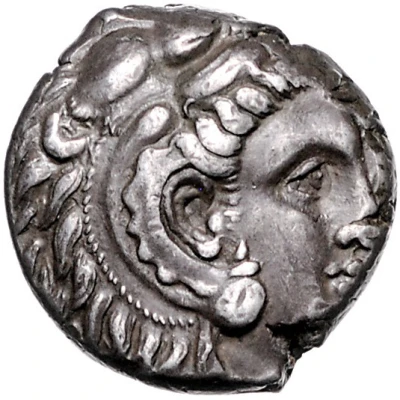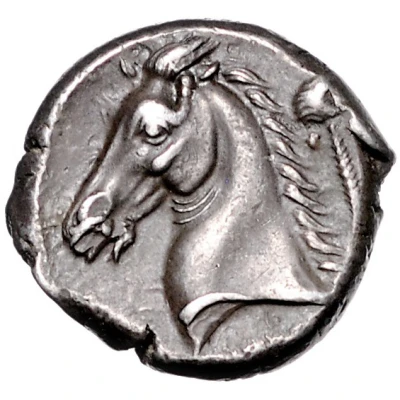


© Emporium Hamburg
Tetradrachm 320 BC - 300 BC
| Silver | 16.88 g | - |
| Issuer | Uncertain Punic mint (Carthaginian Empire) |
|---|---|
| Type | Standard circulation coin |
| Years | 320 BC - 300 BC |
| Value | Tetradrachm (4) |
| Composition | Silver |
| Weight | 16.88 g |
| Shape | Round (irregular) |
| Technique | Hammered |
| Demonetized | Yes |
| Updated | 2024-10-09 |
| Numista | N#193390 |
|---|---|
| Rarity index | 97% |
Reverse
Horse head to left. Palm tree behind.
Comment
Coins from this series, usually bearing the Punic legend "mhnt" (camp), "m'mhnt" (people of the camp), "s'm'mhnt", "m'm", or other similar variations were likely minted in Western Sicily. Several theories debate the exact location of the mint, with the most likely candidates being Entella and Lilybaion. Another theory suggests that this was a mobile military mint, supportting the Punic war efforts, stationed regularly at Lilybaion.Interesting fact
The Tetradrachm coin from the Uncertain Punic mint (Carthaginian Empire) was used as a form of currency in the ancient Mediterranean world, and its design was influenced by the Greek coinage of the time. The obverse side of the coin typically featured a depiction of the goddess Tanit, who was a patron deity of Carthage, while the reverse side featured a representation of a horse, which was a symbol of strength and power. The coin's design and imagery reflect the cultural exchange and blending that occurred between the Carthaginians and the Greeks during this time period.